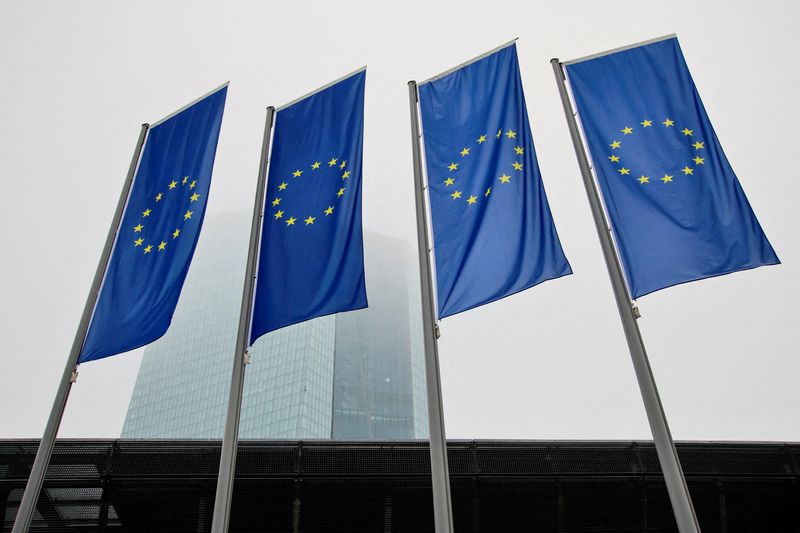By Francesco Canepa
FRANKFURT (Reuters) - Attacks by Italy's new government on the European Central Bank over its plans to raise borrowing costs may be a sign of things to come for a euro zone struggling with inflation and debt.
Top Italian ministers have lashed out at the ECB since it signalled a string of interest rate hikes and told governments to stop showering households and companies with subsidies or face an even "stronger monetary response".
This was a signal to investors that the ECB was not prepared to keep financing government deficits as it has done for a decade, and particularly since the coronavirus pandemic. During that period, public debts have ballooned.
It also showed the ECB did not fear penalising the most indebted of the 19 euro zone countries, Italy among them, which tend to see their borrowing costs rise disproportionately when credit becomes more expensive.
"The ECB is clearly ready to take risks with fragmentation in the euro area," Gilles Moec, chief economist at AXA Investment Managers, said.
Italian finance minister Giancarlo Giorgetti, of the League coalition party, appeared to acknowledge that risk, saying on Saturday that ECB rate hikes "should in some way advise us to be even more careful with regard to public finances".
Governments should have seen the writing on the wall.
The ECB has said for months that any subsidy aimed at helping households and companies deal with a cost-of-living crisis should be "temporary, targeted and tailored" or risk perpetuating inflation.
Most countries have offered broad support, however, helping ease utility bills from Lisbon to Helsinki and Athens, making tax cuts - and, in Spain, even offering free transport.
The ECB thinks these subsidies will lower inflation next year but cause it to be higher in 2024 than expected only a few months ago, justifying more rate hikes.
With all but two euro zone members likely to post deficits next year - budgets in France, Spain and Italy are all set to slip into the red by 4%-5% of GDP, according to Fitch Ratings - the stage is set for clashes.
BLAME GAME
With real incomes still falling, governments will argue that all they are doing is compensating their people for some of their loss of purchasing power.
And they can easily shift the blame: it was the ECB that missed the onset of inflation and let it surge to a record 10%, not fiscal policy.
"I have a hard time saying inflation is being caused by fiscal policy," Natixis economist Dirk Schumacher said.
"Unlike in the U.S., governments in Europe aren't being particularly profligate."
While the political battle plays out, investors have already drawn their own conclusions [GVD/EUR].
With bigger deficits to refinance and the ECB raising interest rates while also winding down its bond purchases, markets have pushed up yields across the euro zone and particularly for the weakest borrowers, such as Italy.
"For countries like Italy, a combination of rapidly shrinking excess reserves and the need for private investors to step up and purchase their new bond issuance in 2023 might well prove very tricky," said Alfonso Peccatiello. founder of MacroCompass newsletter.
Of course the ECB could always douse any market fires by stepping up its bond purchases again.
It can re-route proceeds from bonds bought during the pandemic that are now maturing, or even print fresh money via its new Transmission Protection Instrument (TPI).
The TPI, which is activated at the discretion of the ECB's 25-member Governing Council, allows the ECB to buy unlimited amounts of debt issued by any government it feels is being unduly punished by the market.

But the ECB has been clear it won't be used to rescue countries that have made imprudent "policy errors".
"Criticism of the ECB could be detrimental in this sense," Natixis' Schumacher said. "It would make it politically more difficult for the ECB to support a country in need."